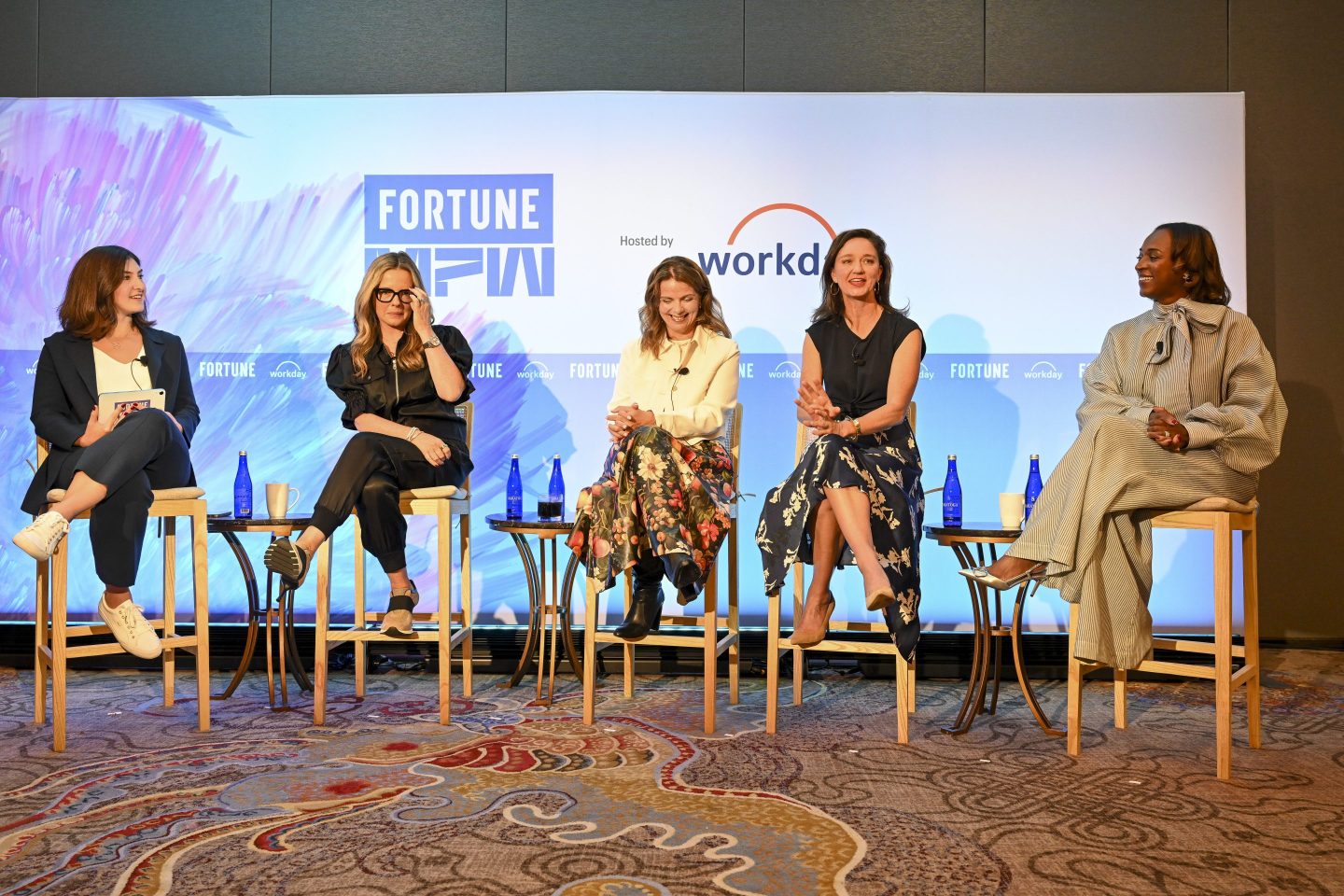Good morning!
At Taskrabbit all-company meetings, CEO Ania Smith has taken to instituting what she calls a “Nailed it, Failed it” segment. She asks her executive team—and encourages other employees—to publicly share their biggest flops, particularly when it relates to experimenting with AI.
“We do stand up very often and say, ‘I tried this, but it didn’t work,’ or ‘I tried that, but it didn’t work,’ to try to normalize a failure,” Smith said.
Smith was one of four C-suite executives I spoke with at the Fortune Most Powerful Women Summit in Washington, D.C. last week on a panel about women redefining work in the age of AI. Encouraging employees to experiment with AI—and giving them permission to fail along the way—was a big theme of our conversation.
When it comes to sharing the stories of things that haven’t gone according to plan, Emma Chalwin, Workday’s chief marketing officer, encouraged business leaders to “get more comfortable being uncomfortable.”
“Vulnerability is a superpower,” she said. “As long as you don’t continue to make the same mistakes over and over again, but you learn from the opportunities and you share what you’re going to do differently moving forward, it makes a huge difference to the team.”
When pilots or trials with AI tools fail, added L’Oréal CHRO Stephanie Kramer, leaders should focus on why humans are needed in order to fix it.
In a time where women are adopting AI tools at a 25% lower rate than men, Pinterest’s Chief People Officer Doniel Sutton advises her female colleagues to lean in. Often, she said, women employees are disproportionately given mundane, administrative tasks. AI can help get that “office house work” done quickly, and free women up for higher-potential swings.
“One of the things that I appreciate about what AI is doing is lessening that invisible work and the burden of it so that it frees you up to have the capacity and bandwidth to focus on more strategic elements of the job, the high-impact work, the things that are going to truly differentiate you in the office,” Sutton said. “I definitely think that’s an advantage.”
Kristin Stoller
Editorial Director, Fortune Live Media
kristin.stoller@fortune.com
Around the Table
A round-up of the most important HR headlines.
The secret to building teams that thrive? “Glue employees”—the quiet team players who exhibit high emotional intelligence and hold everything together. Wall Street Journal
China’s sharp population decline means that it will soon run out of workers, potentially affecting supply chains. Washington Post
Some 76% of U.S. employees say they’d look for a new job if they were forced to return to the office. CNBC
Watercooler
Everything you need to know from Fortune.
The humanity approach. Author and researcher Brené Brown said that fear-based, tough-minded leadership doesn’t fit the needs of a younger workforce. —Sydney Lake
Balance backlash. Billionaire bosses like Jeff Bezos and Reid Hoffman have denounced the term “work-life balance.” Here’s why. —Emma Burleigh
Volunteer vision. As millions of young grads face unemployment, Verizon’s talent chief says that unpaid experience can set candidates apart.—Orianna Rosa Royle













